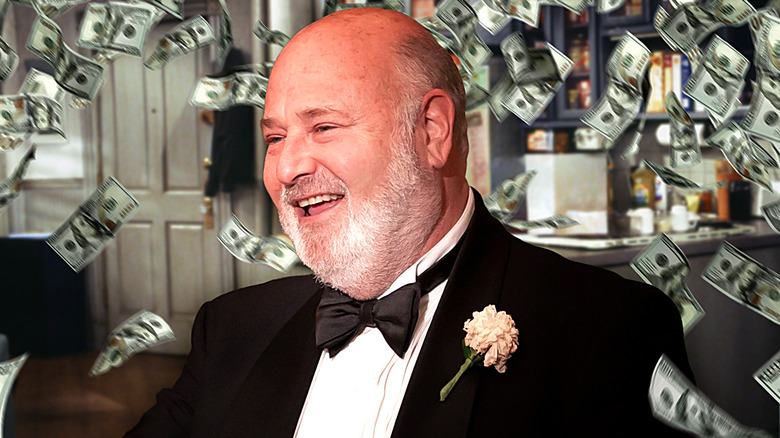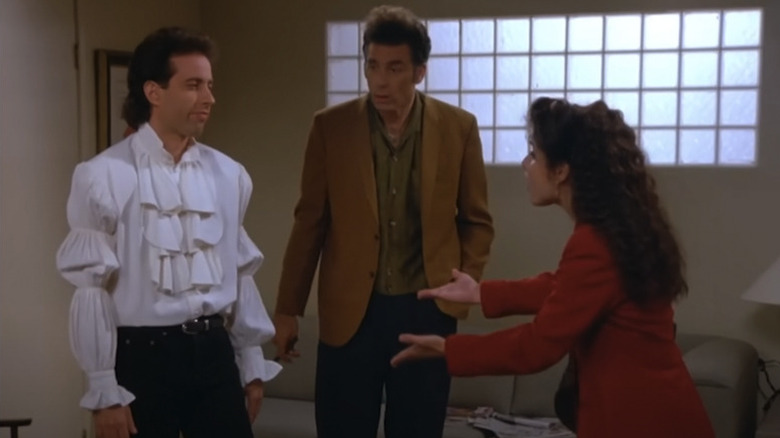
For Christmas one year, I gave my grandpa a DVD box set of the early “Seinfeld” seasons. My dad thought it was a silly gift because a now-classic show like “Seinfeld” would probably have reruns until the end of time. So far, my dad has been right. Even as streaming has transformed the television landscape, the availability and appeal of “Seinfeld” shows no signs of fading. In fact, it’s this ongoing popularity that helped turn director Rob Reiner’s production company, Castle Rock Entertainment, into a cash cow.
Named after Stephen King’s famous setting on the Maine coast, Castle Rock Entertainment is an American independent film and television production company founded in 1987 by Rob Reiner, Martin Shafer, Andrew Scheinman, Glenn Padnick, and Alan Horn. The company produced numerous acclaimed independent films, including Richard Linklater’s “Before” trilogy, several Stephen King adaptations such as “The Green Mile” and “The Shawshank Redemption,” as well as crime thrillers “Murder by Numbers” and “Michael Clayton.” The company did not find the same broad level of success with television shows, with few except the short-lived “The Single Guy” and ”Boston Common” making it to air.
But no project achieved the same level of success as Jerry Seinfeld’s self-titled sitcom “Seinfeld.” The quirky characters and observational humor left such a stamp on popular culture that terms like “shrinkage,” “Festivus,” “close talker,” and “double dipping” became part of our common vernacular. Just how much did “perhaps the most profitable show in television history,” as The New York Times put it, go on to make?
The sitcom about nothing became a billion-dollar idea
According to the New York Post in 2017, “Seinfeld” was estimated to have earned nearly $4.06 billion in syndication. Men’s Journal reports that co-creator and star Jerry Seinfeld (who created the show alongside comedian Larry David) was earning $1 million per episode by the final seasons, and with other syndication revenue and licensing deals, totaling about $465 million, combined with other assets, his net worth eventually snowballed to $1 billion. Not bad for a comedian who makes jokes about airplane food.
The NYT estimates that “Seinfeld” might have made “perhaps $1.5 billion in revenue” for Castle Rock. That’s a tremendous amount for one show, but the failure to launch other TV shows and a string of box office flops like Eddie Murphy’s juvenile sci-fi comedy “The Adventures of Pluto Nash” (which /Film writer Ryan Scott questions is the biggest bomb of all time) or the overly cryptic “The Salton Sea,” led to the company being fully folded into Warner Bros. by 2002. Rob Reiner still uses the Castle Rock logo for some his producing of indie films, but ultimately the company is all within Warner Bros. But the tides turned for the company on October 19, 2021, when it was revived with a $170 million investment from entrepreneur Derrick Rossi.
Castle Rock Entertainment recently produced an HBO documentary on the innovative comedian Albert Brooks called “Albert Brooks: Defending My Life,” and it’s prepping a sequel to Rob Reiner’s “This Is Spinal Tap” rock and roll mockumentary. While we’re excited about Castle Rock’s revival, it’s ironic that, for all the creative projects they have yet to produce, it was ultimately a “show about nothing” that made them everything.



Leave a Reply